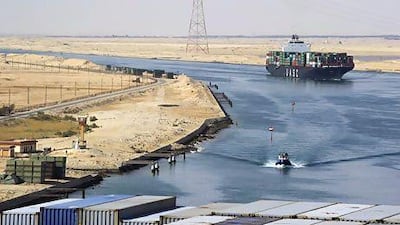The Middle East and North Africa resembles Europe with a lack of reform and the richer parts of the region bailing out their troubled neighbours, says the chief economist of Saxo Bank.
Steen Jakobsen said the Mena region was losing momentum, despite strong growth in oil-producing countries.
"Mena is now divided into two halves: the north versus the south," he wrote in a research report that the Copenhagen-based bank released yesterday.
"This is not unlike in Europe, just with a bit of role reversal. In Europe, the north looks healthy and must figure out how to dig the south out of its economic woes. In Mena, it's the south trying to keep the north out of political trouble as they fear the risk of a spillover from the rising tide of popular demand for democracy and more political accountability for the predicaments of their economy and society."
Wealth in Mena has long been split between the oil producing GCC and the poorer parts of the region. The divide has been accentuated by a wave of instability from late 2010, evident most recently in unrest in Egypt and Syria.
The upheavals have created a region that is "highly flammable, both economically and politically," Mr Jakobsen wrote.
After the removal of Egypt's Islamist president Mohammed Morsi in July, the UAE, Saudi Arabia and Kuwait responded by offering US$12 billion in aid to the new government in Cairo. "To keep Mena afloat, the south - like Europe's north - will need to provide more money, guidance and mediation. History also tells us that long-term solutions need to be driven by respect, understanding and economic incentives coming from Mena - not from Europe or the US," he wrote.
The region was also struggling from having failed to reform, with an economic system dominated by transfer incomes, similar to the EU.
As an example, the UAE, Jordan and Iran are among the few countries to take steps towards easing subsidies in recent years by lifting energy prices closer to market levels. The International Monetary Fund has for years urged the region to peel back such subsidies, which cost Mena governments close to $240bn in 2011.
"The growth policy, more often than not, has simply been driven by oil prices, the need to hastily create jobs and satisfy the most basic material needs of the population," he wrote.
"This worked for a time for Mena when there was no political volatility. But with the opening of the political dimension, the game has changed and Mena governments aren't prepared for the challenges, having failed to reform economically or politically before their economies peaked in 2007."
Mr Jakobsen said the geopolitical risk attached to Egypt's troubles was adding about an extra $2 a barrel to the oil price.
"The real risk is not having the Suez Canal open, which all involved parties, including the US, want to secure. Should they fail, it would mean $20 to $25 of extra premium on top of the current geopolitical risk," he wrote.

